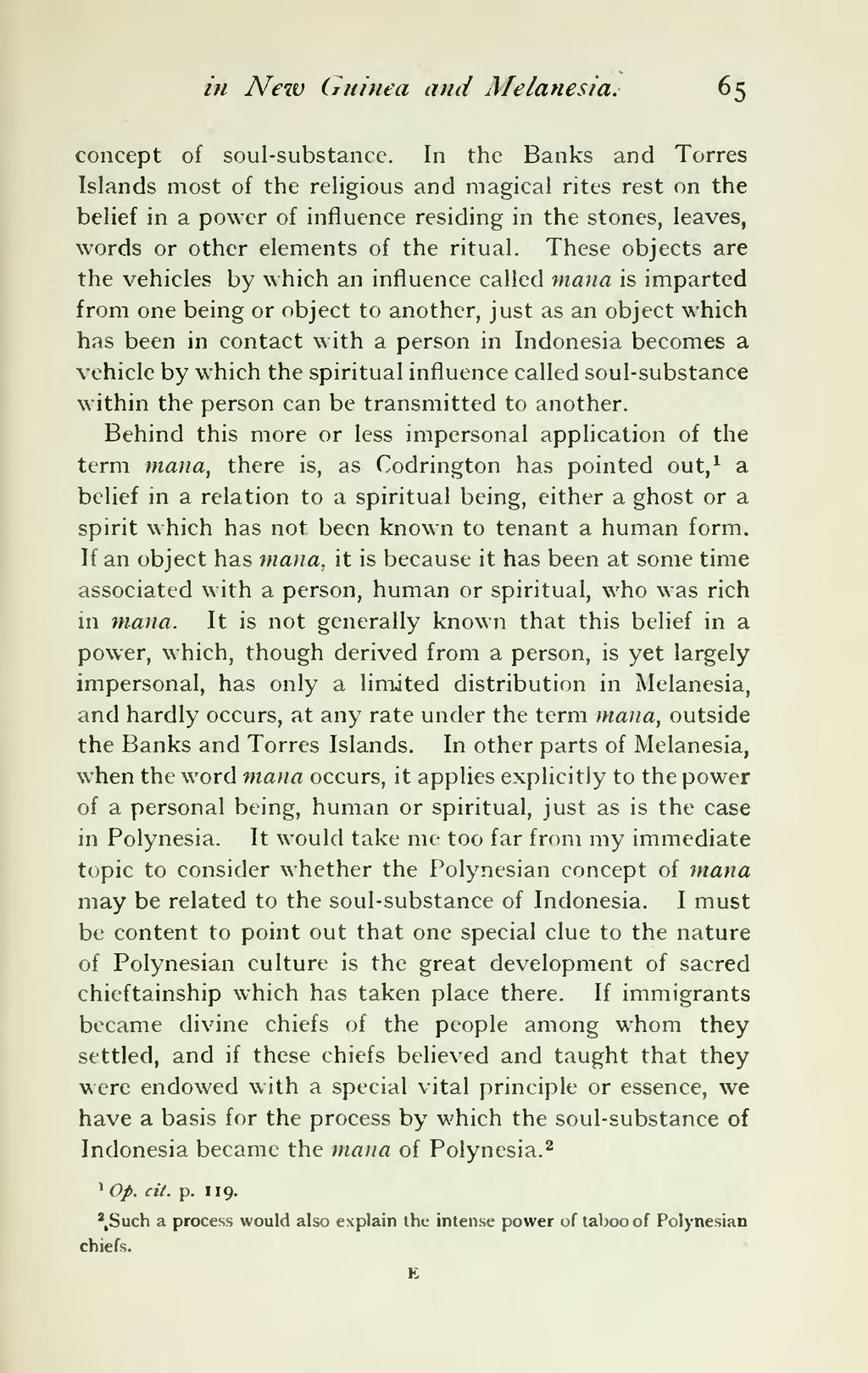concept of soul-substance. In the Banks and Torres Islands most of the religious and magical rites rest on the belief in a power of influence residing in the stones, leaves, words or other elements of the ritual. These objects are the vehicles by which an influence called mana is imparted from one being or object to another, just as an object which has been in contact with a person in Indonesia becomes a vehicle by which the spiritual influence called soul-substance within the person can be transmitted to another.
Behind this more or less impersonal application of the term mana, there is, as Codrington has pointed out,[1] a belief in a relation to a spiritual being, either a ghost or a spirit which has not been known to tenant a human form. If an object has mana, it is because it has been at some time associated with a person, human or spiritual, who was rich in mana. It is not generally known that this belief in a power, which, though derived from a person, is yet largely impersonal, has only a limited distribution in Melanesia, and hardly occurs, at any rate under the term mana, outside the Banks and Torres Islands. In other parts of Melanesia, when the word mana occurs, it applies explicitly to the power of a personal being, human or spiritual, just as is the case in Polynesia. It would take me too far from my immediate topic to consider whether the Polynesian concept of mana may be related to the soul-substance of Indonesia. I must be content to point out that one special clue to the nature of Polynesian culture is the great development of sacred chieftainship which has taken place there. If immigrants became divine chiefs of the people among whom they settled, and if these chiefs believed and taught that they were endowed with a special vital principle or essence, we have a basis for the process by which the soul-substance of Indonesia became the mana of Polynesia.[2]
